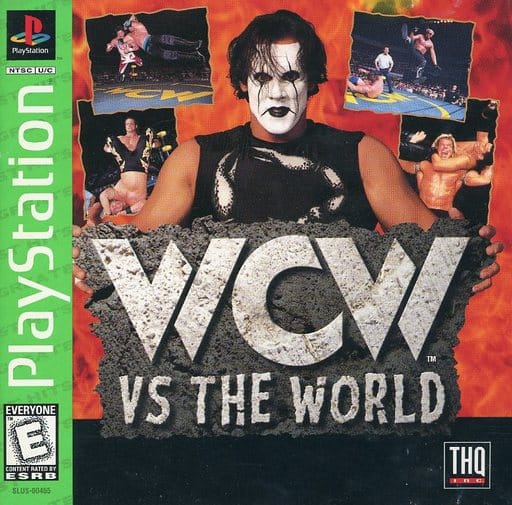誰摧毀了世界冠軍摔角(WCW)?
早期WCW的成功與最終失敗的原因
在1990年代初期,世界冠軍摔角(WCW)的收視率一度壓過世界摔角聯盟(WWF,現為WWE),但最終卻被WWE收購。最近在電視播出的美國紀錄片《誰扼殺了WCW》(" Who Killed WCW?),重新探討原本最被看好的摔角公司卻在很短時間內殞落的原因。
早期的成功
WCW在1990年代中期取得巨大成功,主要得益於以下幾個因素:
1.Ted Turner的支持:Ted Turner擁有的Turner Broadcasting System給予WCW強大的財務支持和廣播平台,使其在收視率上取得優勢。
2.nWo(新世界秩序)的創立:由Hulk Hogan、Kevin Nash和Scott Hall組成的nWo幫派劇情引發觀眾的巨大興趣和熱情,為WCW帶來極高收視率。
3.明星選手的加盟:WCW成功吸引眾多知名摔角手,如Hulk Hogan、Randy Savage、Ric Flair等,這些明星選手為WCW帶來大量的觀眾。
最終的失敗
儘管WCW曾經風光無限,但最終卻被WWE收購,原因包括但不限於以下幾點:
Ted Turner失去控制:Ted Turner在1996年將他的媒體帝國賣給Time Warner,隨後AOL於2001年收購Time Warner。新管理層對摔角節目的支持減少,導致WCW失去重要的資金來源。
Eric Bischoff的管理問題:他在1990年代中期擔任WCW的執行副總裁,雖然他一度帶領WCW取得成功,但後期的管理問題逐漸顯現。過度依賴老牌明星和過時的劇情,未能及時發掘和培養新生代摔角手。
nWo劇情的疲軟:nWo在最初取得巨大成功,但隨著時間推移,劇情變得乏味且缺乏新意,觀眾逐漸失去興趣。而在一場Hulk Hogan與Kevin Nash的比賽,吸引超過4萬觀眾購票入場觀看,Kevin Nash在開賽後直接躺下讓Hulk Hogan壓制3秒成功取得勝利,瞬間引發觀眾的怒火,紛紛丟垃圾到舞台中央。在此事件後收視率狂跌。
Hulk Hogan的影響:Hulk Hogan雖然是摔角界的巨星,但他的比賽風格和劇情安排開始變得老套。Hogan有時候過於干預劇情安排,導致整體節目的品質下降。而用每年年薪近3百萬美金從WWE挖角的Bret Hart並沒有被妥善運用,他退休後抱怨一切都是Hulk Hogan搞的鬼。
財務管理不善:WCW在財務管理上存在嚴重問題,浪費大量資金在高額合約和奢侈的製作上,最終導致公司財務狀況惡化。當時部分選手出賽場次不多,卻領到高薪,部分從WWE跳槽到WCW的選手表示,他們當時領的薪水比原來高出至少1~2倍以上。
競爭策略失誤:WCW的競爭策略逐漸失敗,無法與WWF的創新劇情和新生代明星抗衡。WWF在Attitude Era的崛起,特別是Steve Austin和The Rock等明星的成功,進一步壓制WCW。
WCW的失敗是多種因素共同作用的結果,包括管理不善、財務問題、劇情疲軟和競爭壓力等。這些問題最終導致WCW的衰落和被WWE收購。儘管WCW曾經在摔角界風靡一時,但其管理層未能有效應對市場變化和內部挑戰,最終無法維持其成功。
The Early Success and Ultimate Failure of WCW
In the early 1990s, World Championship Wrestling (WCW) once surpassed the World Wrestling Federation (WWF, now WWE) in ratings, but was eventually acquired by WWE. The recent American documentary "Who Killed WCW?" revisits the reasons why a once-promising wrestling company collapsed in a short period.
Early Success
WCW achieved tremendous success in the mid-1990s, primarily due to the following factors:
Ted Turner's Support: Ted Turner's Turner Broadcasting System provided WCW with substantial financial backing and a broad platform, giving it a ratings advantage.
Creation of nWo (New World Order): The nWo faction, featuring Hulk Hogan, Kevin Nash, and Scott Hall, sparked enormous interest and enthusiasm among viewers, resulting in very high ratings for WCW.
Star Wrestlers Joining: WCW successfully attracted many well-known wrestlers, such as Hulk Hogan, Randy Savage, and Ric Flair, which brought a large audience to WCW.
Ultimate Failure
Despite its past glory, WCW was eventually acquired by WWE. The reasons for its downfall include but are not limited to:
Ted Turner Losing Control: Ted Turner sold his media empire to Time Warner in 1996, and AOL subsequently acquired Time Warner in 2001. The new management reduced support for wrestling programs, causing WCW to lose critical funding.
Eric Bischoff's Management Issues: Eric Bischoff served as WCW's Executive Vice President in the mid-1990s, leading WCW to success initially. However, later management issues surfaced, including an over-reliance on veteran stars and outdated storylines, and a failure to identify and develop new wrestling talent.
Decline of nWo Storyline: While nWo was initially hugely successful, its storyline became stale and lacked innovation over time, causing viewers to lose interest. A notable incident occurred during a match between Hulk Hogan and Kevin Nash, where Nash lay down immediately after the match began, allowing Hogan to pin him for an easy win. This enraged the audience, who threw trash into the ring, leading to a significant drop in ratings.
Hulk Hogan's Influence: Although Hulk Hogan was a wrestling icon, his match style and storylines began to feel outdated. Hogan often interfered with storyline decisions, lowering the overall quality of the programs. Bret Hart, who was lured away from WWE with a high salary of nearly $3 million per year, was not utilized effectively. Hart later complained that Hogan was to blame.
Poor Financial Management: WCW had severe financial management issues, wasting vast amounts of money on high contracts and extravagant production costs, leading to financial deterioration. Some wrestlers received high salaries despite participating in few matches. Those who jumped from WWE to WCW reported earning at least 1-2 times more than their previous salaries.
Failed Competitive Strategy: WCW's competitive strategy gradually failed to keep up with WWF's innovative storylines and new star power. WWF's rise during the Attitude Era, particularly the success of stars like Steve Austin and The Rock, further suppressed WCW.
Conclusion
WCW's failure was the result of multiple factors, including poor management, financial issues, stale storylines, and competitive pressure. These problems ultimately led to WCW's decline and acquisition by WWE. Although WCW once thrived in the wrestling world, its management could not effectively adapt to market changes and internal challenges, leading to its inability to sustain success.
.jpg)

照片:產品官網
- 1
- 2
- 3
- 4
